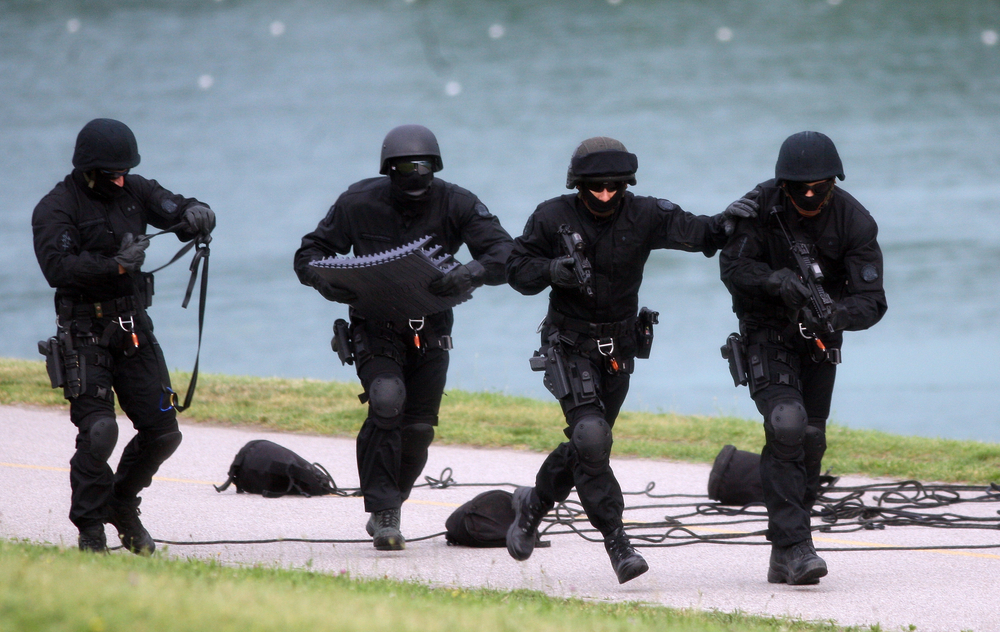A new paper in Science says field research on the ground with youths engaged in violent extremism or susceptible to it is needed to improve the West's understanding of terrorist groups like Islamic State and Al Qaeda. The paper says such research could harness machine learning and techniques more commonly used in public health research like epidemiological modelling.
The paper argues that the US government’s national security systems are too structured around state to state interactions which are more suited to the Cold War than modern-day threats. The research adds that they also focus on criminal procedures, which have limited effectiveness against mass movements; while military policy fails to address the importance of commitment to beliefs and values, as with many suicide bombers. Research should be aimed at preventing the radicalisation of youth by focusing on their ‘hopes and dreams’ rather than policies that view the young as a problem, says the paper led by Scott Atran, a Research Associate at the University of Oxford in the UK, with colleagues from Artis International, the University of Michigan and Carnegie Mellon University in the United States.
The US government has relied, almost exclusively, on its intelligence services that monitor individuals and groups that threaten national security and specialise in clandestine gathering and analysing, it suggests. Yet, such information has not necessarily been scientifically tested or systematically cross-examined for accuracy and completeness, and there is little research that approaches statistical or clinical reliability for generalisations about terrorism or terrorists, says the paper.
While US government policy focuses on counter narratives as an alternative to the terrorist ideology, the authors argue this strategy does not focus enough on where, when and how ideas and values acquire their effectiveness, or the concrete basis for their existence in social networks and neighbourhoods where terrorism thrives. They say research and policy has to examine the passion and purpose of terrorist groups and the factors that bind its members together. The paper remarks that the Islamic State of Iraq and Syria alone has managed to recruit from 100 countries, and some of this success can be partly attributed to its members learning the nuances of words and social connections to adapt its techniques for enlisting new followers.
Research and funding to understand terrorism needs to extend beyond the 'sporadic involvement' of researchers from the top universities to become a coordinated multinational, interdisciplinary effort, says the paper. Field interviews with militants, country surveys and psychological experiments have to be more joined up, and big data analyses will need to be informed by theory and field experience to pinpoint connections that are truly significant and meaningful.
The independence of the scientists involved is paramount, argues the paper. 'Unless government maintains proper distance, it will deter scientists ready to build knowledge to contain terrorism but who fear wasting time or compromising their integrity,' it concludes.
Another challenge highlighted is that of funding for research into disciplines that could be harnessed to bring together diverse data and develop algorithms for big data-driven work. The US Department of Defense has provided no more than two per cent of its annual $5-6 billion budget for science and engineering research, and just six per cent of $16 billion for basic research for psychology and social sciences research in 2016, says the paper. Although the White House set up a federal programme for countering violent extremism in 2015, this unit 'currently lacks the mechanisms and funding'. It highlights a need for theoretical and field knowledge to create 'culturally sensitive' training data; and researchers have to be alert to any changes in terrorists’ behaviour that could undermine archived observations.
To become more successful in combating terrorism, governments should look at how to build research capacity that is properly funded, independent of governmental interference, and grounded in systematic data collection and checking, and analyses
Scott Atran, Research Associate in School of Anthropology and Department of Politics and International Relations
Professor Atran comments: 'To be more successful in combating terrorism, governments should look at how they can build research capacity that is properly funded, independent of governmental interference and grounded in systematic data collection and checking, and analyses.'
The paper notes that previous research has suggested that nearly three-quarters of those who join Islamic State or Al Qaeda do so in groups, and these are often pre-existing social networks and typically cluster in particular towns and neighbourhoods. This clustered rather than dispersed pattern of recruitment through pre-existing social networks suggests that counter-radicalisation and prevention policies need to focus less on individual personalities and more on whole group dynamics, it explains.
Scott Atran adds: 'There is a need to improve our understanding of how young people become radicalised and what we can do to prevent it. Theories about "root causes" have concentrated on factors such as an individual’s social and economic circumstances, and these are not nuanced enough. Recent research has shown social networking is important for the growth in size and scope of terrorist groups. Epidemiological models that have more commonly been used in public health studies could be deployed – looking at how radical ideas move through host populations.'
